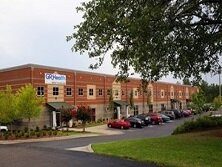Defeat Seizures with Vagal Nerve Stimulation, Temporal Lobectomy or Other Types of Epilepsy Surgery
Epilepsy surgery can dramatically improve the quality of life for patients who do not respond to medications. An estimated 50,000 epilepsy patients – including many in Georgia and South Carolina -- could benefit from surgery. Approximately 90 percent of these people are not offered that treatment option because of lack of awareness or access to physicians who can perform the surgery. Georgia Regents Medical Center Epilepsy Center is one of the few treatment centers in the Southeast to offer the full range of epilepsy surgeries.
Traditionally, epilepsy patients have spent years trying medications and combinations of medications before considering surgery. Fortunately, that process can now be expedited. As a result, more patients are opting for epilepsy surgery. Thanks to our history in performing surgeries on both adult and pediatric patients, Georgia Regents Medical Center Epilepsy Center is far ahead of that curve.
Pre-surgical Evaluations for Safer, More Focused Surgeries
Georgia Regents Medical Center Epilepsy Center is equipped with the most sophisticated monitoring tests and technology to treat epilepsy. These tests include:
- Magnetic Resonance Imaging (3 Tesla MRI).
- Positron Emission Tomography (PET).
- Single Photon Emission Computer Tomography (SPECT).
- Neuropsychological Tests to localize the seizure focus.
- Wada tests to determine which side of the patient’s brain controls language and memory.
- Functional brain mapping. Each person’s brain is unique. Functional brain mapping lets us identify the areas of the patient’s brain that control movement, sensation and speech for safer, more targeted surgeries.
- Electrocorticography. This procedure uses electrodes that lie directly on the exposed brain to record the brain’s electrical activity during surgery. It allows surgeons to identify critical brain areas and avoid removing these brain areas during surgery.
Epilepsy Team Conferences to Interpret the Results
Once the test results are in, epileptologists, neurosurgeons and other team members hold an epilepsy conference to review the test results and determine if surgery is possible.
A Track Record of Successful Pediatric and Adult Epilepsy Surgeries
Since 1981, neurosurgeons at Georgia Regents Medical Center Epilepsy Center have performed pediatric and adult epilepsy surgery on patients from the Augusta, Georgia, area and beyond. These include:
Temporal Lobectomy (Temporal Lobe Resection)
The most common type of epilepsy surgery, this procedure involves removing part of the temporal lobe, a part of the brain that runs from the temples to just past the ears, to stop seizures that originate in that section of the brain. Studies indicate that patients who have temporal lobectomy surgeries have a dramatic reduction in seizures.
Extra Temporal Resection
This surgery may be performed when the portion of the brain that’s causing seizures is too vital to remove. It can be done anywhere other than the temporal lobe, commonly on the frontal or occipital lobes.
Corpus Callosotomy
During this procedure the surgeon cuts the connection between the right and left sides (hemispheres) of the brain to stop seizure activity from spreading through the brain.
Hemispherectomy
Hemispherectomy involves removing the middle portion on one side of the brain and cutting the connections of this side of the brain to the remaining brain. This procedure is generally performed on children who have seizures because of damage to just one half of the brain due to rare conditions that are present at birth or appear in early infancy.
Vagal Nerve Stimulation
Vagal nerve stimulation (VNS) is used for patients 12 and older who have seizures that cannot be controlled by other methods. During the procedure, surgeons insert a small device under the skin of the chest wall. Small wires attached to the device are placed under the skin and around the vagal nerve, a large nerve in the neck. When the person feels a seizure coming on, he or she can activate the device by holding a small magnet over the battery.
Most people who have epilepsy surgery see a significant reduction in the number of seizures and a great improvement in the quality of their lives. Many actually stop having seizures entirely.
If you suffer from seizures, call our Epilepsy Coordinator at 706-721-4626 today. You may also e-mail us at [email protected].





